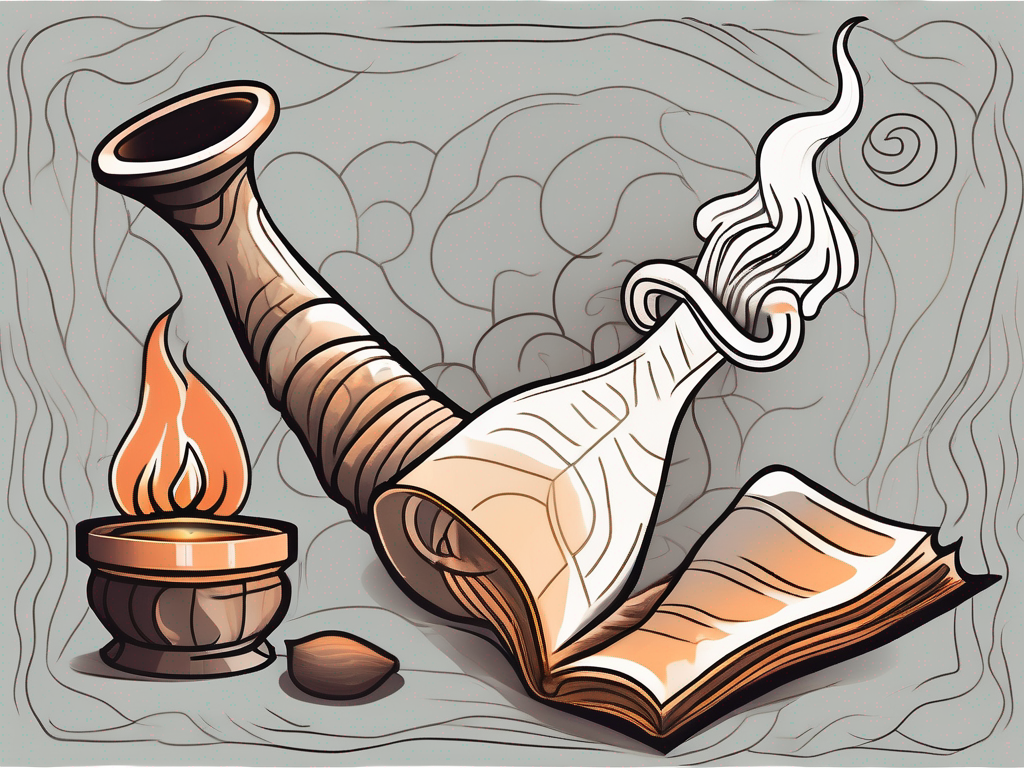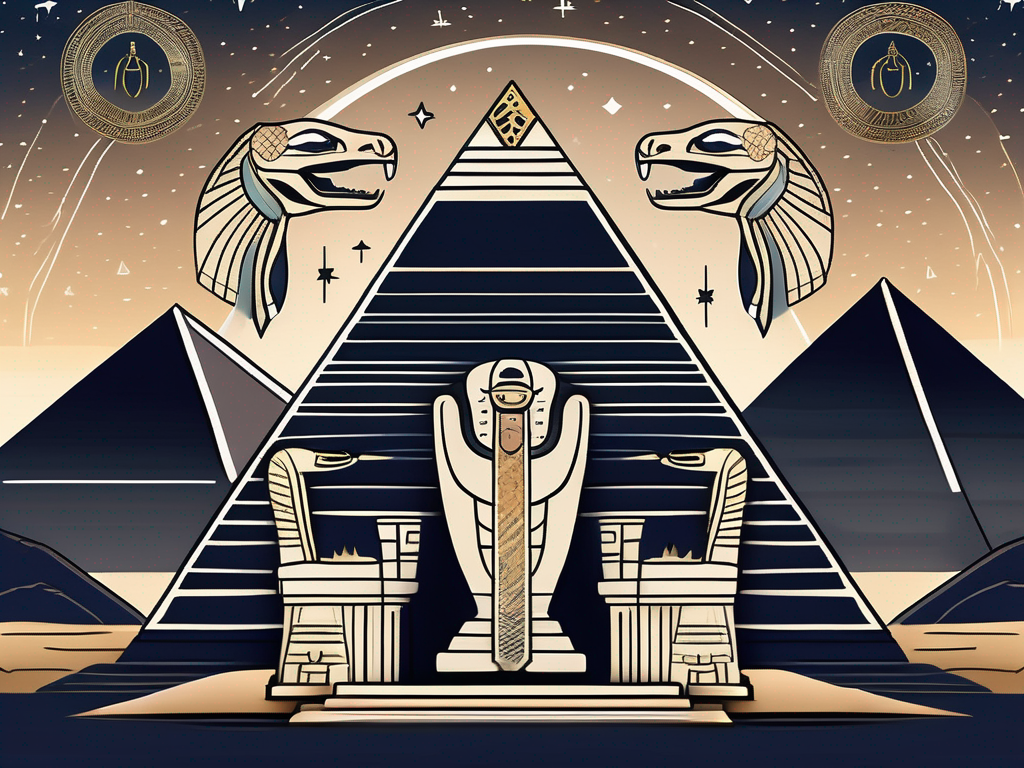Jeroboam is a figure in Judaism who played a significant role in ancient Israel’s history. Understanding his story requires delving into the historical context of his era, examining his rise to power, exploring his reign and its impact on Judaism, and considering his lasting legacy. Let’s embark on a journey to uncover the intriguing tale of Jeroboam.
Understanding the Historical Context of Jeroboam
Before delving into Jeroboam’s life, it’s crucial to grasp the era of kings in ancient Israel. This period marked a significant transition for Israel, as the nation shifted from a loose tribal confederation to a centralized monarchy. It was a time of political and religious change, which set the stage for Jeroboam’s rise to power.
During this era, the Israelites found themselves at a crossroads. They had experienced the leadership of judges, who ruled over the tribes with varying degrees of success. However, the people began to desire a more stable and unified form of governance. This desire, coupled with external pressures from neighboring kingdoms, led to the establishment of a monarchy.
The establishment of a monarchy in Israel was not without controversy. Some saw it as a necessary step towards progress and security, while others viewed it as a betrayal of the nation’s unique identity as a confederation of tribes. These differing opinions created a tense atmosphere, with factions forming around different leaders and ideologies.
The Era of Kings in Ancient Israel
During the era of kings, Israel underwent a transformation in governance and societal structure. The once cohesive twelve tribes became divided, with ten tribes forming the northern kingdom of Israel and two tribes forming the southern kingdom of Judah. This division was not only geographical but also ideological.
The northern kingdom of Israel, where Jeroboam would eventually rise to power, faced unique challenges. It was located at a strategic crossroads between powerful empires, such as Assyria and Egypt, who sought to exert their influence over the region. This constant threat of foreign domination shaped the political landscape and forced leaders like Jeroboam to navigate a delicate balancing act between maintaining independence and securing alliances.
Furthermore, the division between the northern and southern kingdoms also had religious implications. The southern kingdom of Judah remained loyal to the Davidic dynasty and the worship of Yahweh in Jerusalem, while the northern kingdom of Israel developed its own religious practices. This religious divide added another layer of complexity to the era of kings and influenced the decisions made by leaders like Jeroboam.
Political and Religious Climate During Jeroboam’s Time
In Jeroboam’s time, the political and religious climate was tense and complex. The kingdom of Israel was in a constant struggle to maintain independence from foreign powers, while internally, different religious factions vied for influence. This struggle for power often led to political instability and even violence.
Jeroboam, as a prominent figure in the northern kingdom, found himself at the center of these political and religious tensions. He was not only tasked with governing a divided nation but also with establishing a religious system that would rival the worship in Jerusalem. This decision was met with resistance from traditionalists who saw it as a departure from the true faith.
Despite these challenges, Jeroboam’s reign was not without its successes. He implemented various reforms, such as fortifying cities and strengthening the military, which helped secure the northern kingdom’s independence. However, his legacy remains complex, as his religious innovations ultimately led to the downfall of the northern kingdom and its exile.
In conclusion, understanding the historical context of Jeroboam is essential in comprehending the complexities of his life and reign. The era of kings in ancient Israel was a time of political and religious change, with the establishment of a monarchy and the division of the nation into two kingdoms. Jeroboam’s story is intertwined with these larger historical forces, making it a fascinating and significant chapter in Israel’s history.
Jeroboam’s Rise to Power
Jeroboam’s early life and background laid the groundwork for his eventual ascent to the throne. Understanding his upbringing provides valuable insights into the man who would shape the destiny of Israel. Let’s take a closer look.
Jeroboam’s Early Life and Background
Jeroboam hailed from humble origins, raised in the northern kingdom of Israel. He was born into a family of farmers, where he learned the value of hard work and perseverance. Growing up, he witnessed the struggles and hardships faced by his people on a daily basis. The constant threat of invasion from neighboring kingdoms and the oppressive rule of the current king fueled his desire for change and ignited his ambition to become a leader.
As a young boy, Jeroboam showed great promise and intelligence. He excelled in his studies, particularly in history and politics. His keen understanding of the complexities of governance and his ability to analyze the strengths and weaknesses of different ruling systems set him apart from his peers.
Jeroboam’s charismatic personality and natural leadership skills also played a significant role in shaping his early life. He had a way with words, effortlessly captivating the attention of those around him. People were drawn to his magnetic presence and his ability to inspire hope and unity.
Ascension to the Throne
Through a series of fateful events, Jeroboam emerged as a central figure in the political landscape of Israel. His reputation as a skilled military commander grew as he successfully defended his people against numerous invasions. His strategic brilliance and tactical prowess earned him the respect and admiration of both his allies and enemies.
Jeroboam’s military successes, coupled with his ability to garner support from influential factions within the kingdom, catapulted him to the throne of the northern kingdom. His coronation marked a turning point in the history of Israel, as he became the first king to rule over the ten tribes of the northern kingdom.
From this position of power, Jeroboam enacted several religious reforms and innovations that left a lasting impact on Judaism. He introduced new rituals and practices, seeking to establish a distinct religious identity for the northern kingdom. These reforms, however, also sparked controversy and division among the people, leading to a deepening rift between the northern and southern kingdoms.
Jeroboam’s rise to power was not without its challenges and obstacles. He faced opposition from rival factions and had to navigate complex political alliances to maintain his rule. Despite these difficulties, he remained steadfast in his commitment to improving the lives of his people and securing the future of the northern kingdom.
In conclusion, Jeroboam’s early life and background, as well as his ascension to the throne, shaped the trajectory of his reign and left a lasting impact on the history of Israel. His rise to power was a testament to his intelligence, leadership skills, and unwavering determination to bring about change.
Jeroboam’s Reign and Its Impact on Judaism
Jeroboam’s reign was marked by both progress and controversy. His efforts to establish a distinct religious identity for the northern kingdom captivated the people but also fueled conflict and dissent. Let’s explore the key aspects of his reign.
Religious Reforms and Innovations
Jeroboam sought to solidify the northern kingdom’s religious practices by introducing significant reforms. He established sanctuaries in strategic locations, diverging from the centralized worship in Jerusalem. These decisions aimed to foster a sense of unity and independence but ultimately led to a division between the northern and southern kingdoms.
Conflict and Controversy
Jeroboam’s religious reforms sparked intense conflict and controversy, both internally and externally. Scholars debate the motivations behind his actions and the implications they had on the religious landscape of ancient Israel. The controversies surrounding his reign continue to captivate the minds of scholars and enthusiasts to this day.
The Legacy of Jeroboam in Jewish History
Jeroboam’s impact on Judaism extends far beyond his lifetime. Interpreting his actions and understanding his legacy provides valuable insights into the development of Jewish thought and leadership. Let’s delve into the interpretations and influences surrounding Jeroboam’s story.
Interpretations of Jeroboam in Jewish Texts
Various Jewish texts offer diverse interpretations of Jeroboam’s character and actions. Some portray him as a tragic figure, while others emphasize his significance as a transformative leader. These interpretations shed light on the complexities of Jeroboam’s legacy and its impact on Jewish historical narratives.
Jeroboam’s Influence on Subsequent Kings and Leaders
Jeroboam’s actions set a precedent for future kings and leaders in Israel and Judah. The repercussions of his reign echoed throughout generations, shaping the decisions and policies of future rulers. It is essential to examine these connections to fully grasp the profound influence of Jeroboam on Jewish history.
Modern Perspectives on Jeroboam
From a modern lens, scholars continue to dissect and analyze Jeroboam’s role in Judaism. Their insights contribute to contemporary discussions on Jewish identity and offer lessons that resonate even in the present day.
Scholarly Views on Jeroboam’s Role in Judaism
Modern scholars analyze Jeroboam’s reign and religious reforms within the broader historical and political context of ancient Israel. Their studies shed light on the motivations behind his actions and the implications they had on the religious landscape of the time. Understanding these scholarly perspectives enhances our comprehension of Jeroboam’s impact on Judaism.
Relevance of Jeroboam’s Story Today
Although thousands of years have passed since Jeroboam’s reign, his story retains its relevance today. The issues he faced, such as religious tension and national identity, continue to resonate in contemporary society. Exploring Jeroboam’s story allows us to reflect on these timeless themes and draw parallels to our own experiences.
In Conclusion
In the annals of Jewish history, few figures have left as enduring a mark as Jeroboam. His rise to power, religious reforms, and complex legacy continue to captivate scholars and enthusiasts alike. Understanding Jeroboam’s story not only allows us to unearth the past but also encourages us to reflect on the timeless themes that shape our present.












